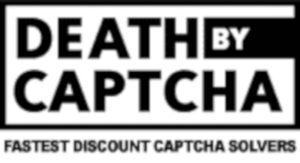 After a great deal of work, the Death By Captcha developers have finally released their new feature to the world – new Recaptcha v3 Support.
After a great deal of work, the Death By Captcha developers have finally released their new feature to the world – new Recaptcha v3 Support.
As you may already know, the Recaptcha v3 API is quite similar in many ways to the previous one used to manage tokens (Recaptcha v2). In Recaptcha v3, the system evaluates or scores each user to determine if it’s bot or human, then it uses the score value to decide if it will accept or not the requests from said user. Lower scores are identified as bots. Check this link to verify the API documentation and download client based sample codes.
With very competitive pricing, Death By Captcha is at the cutting edge of solving tools in the market. Check it out – you can receive free credit for testing from this LINK; ping the service with the promo code below to receive your captchas.
P. S. See the ReCaptcha v2 test results.

 So far the latest developments of the services that develop captchas (google, nucaptcha, etc.) are no match for the captcha bypassers, and Endcaptcha is living proof of it.
So far the latest developments of the services that develop captchas (google, nucaptcha, etc.) are no match for the captcha bypassers, and Endcaptcha is living proof of it.
 The last one is the most used
The last one is the most used

